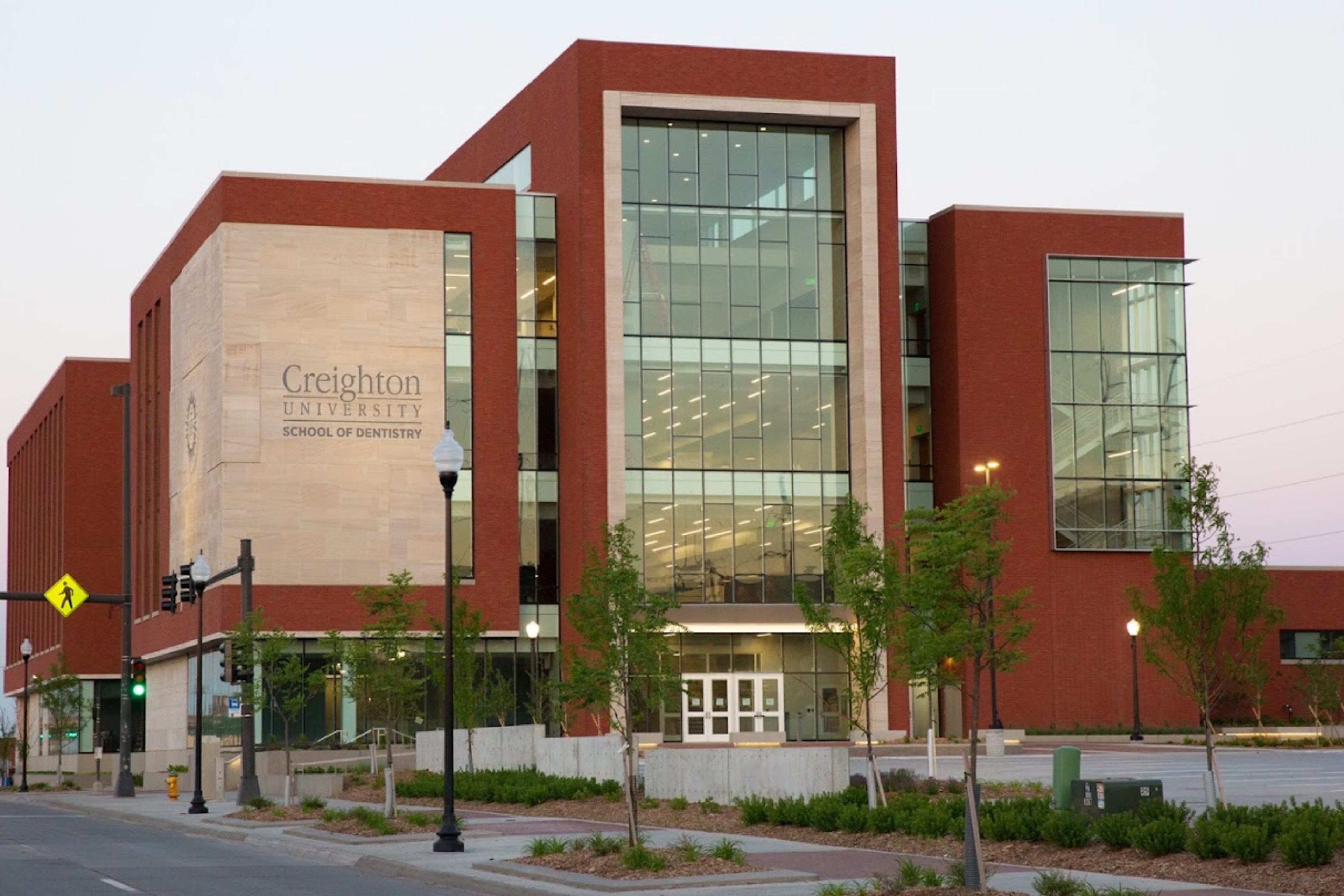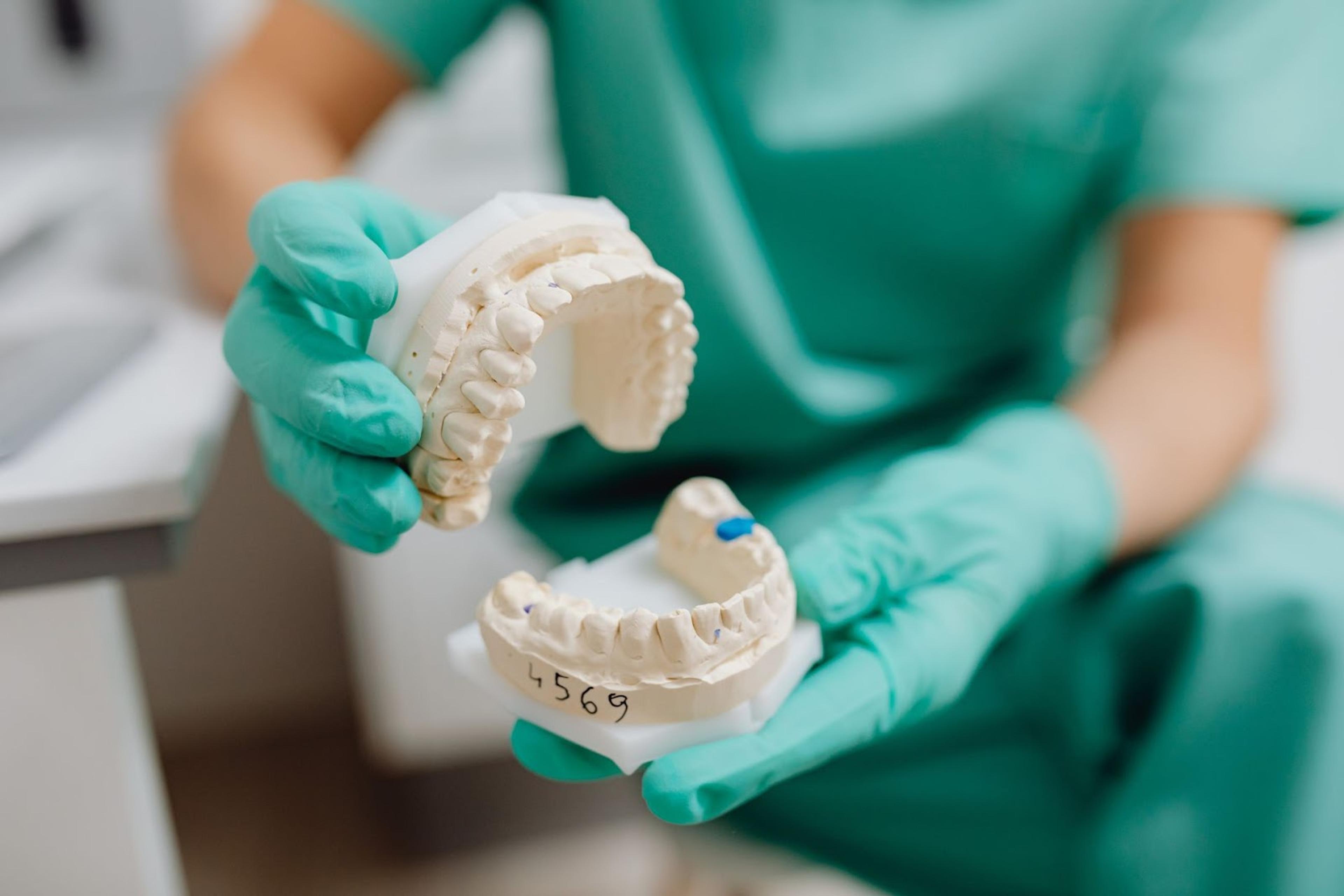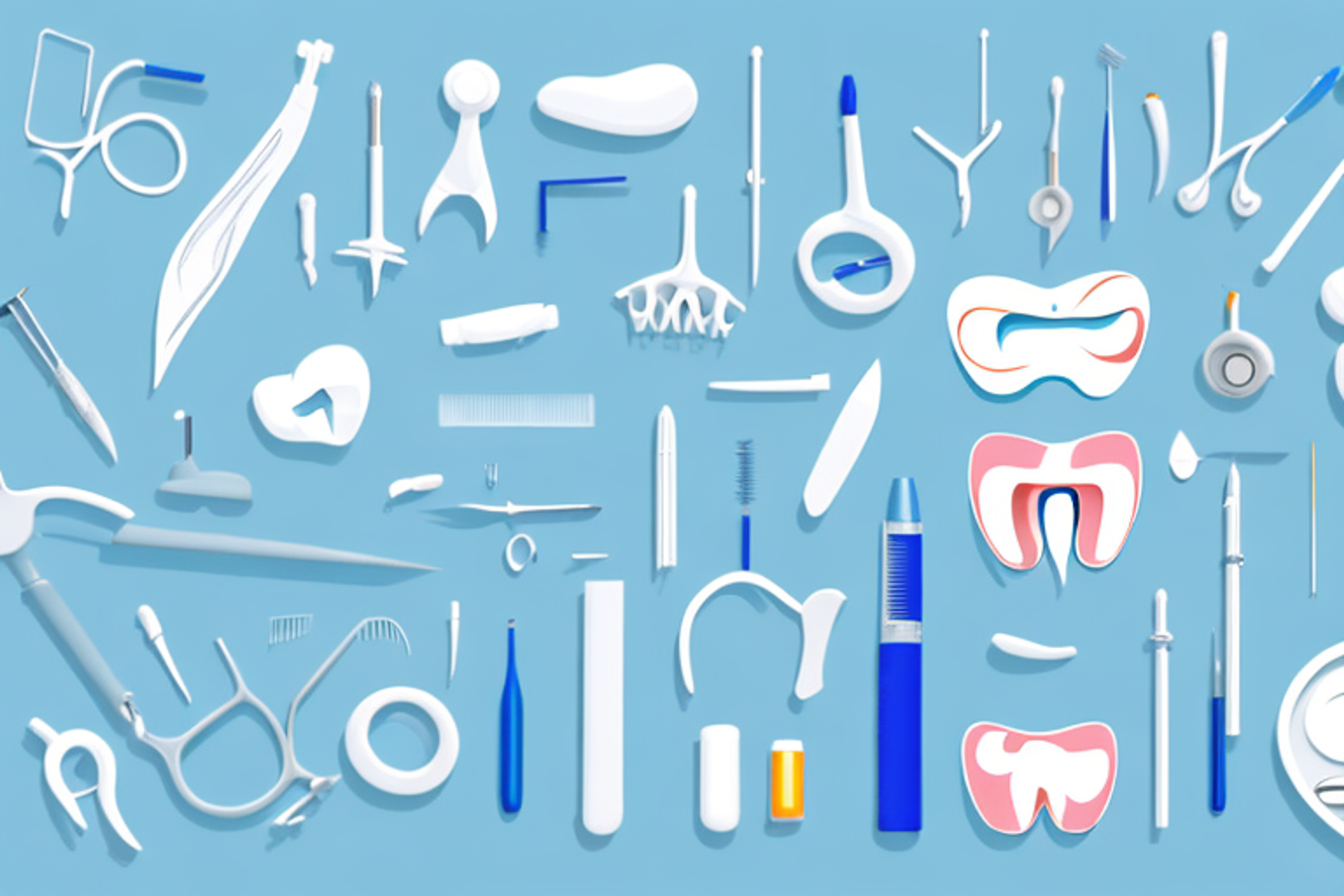University of Michigan School of Dentistry: An Overview of Admissions Requirements
If you're considering applying to the University of Michigan—Ann Arbor School of Dentistry, this article is a must-read.
Posted July 8, 2025
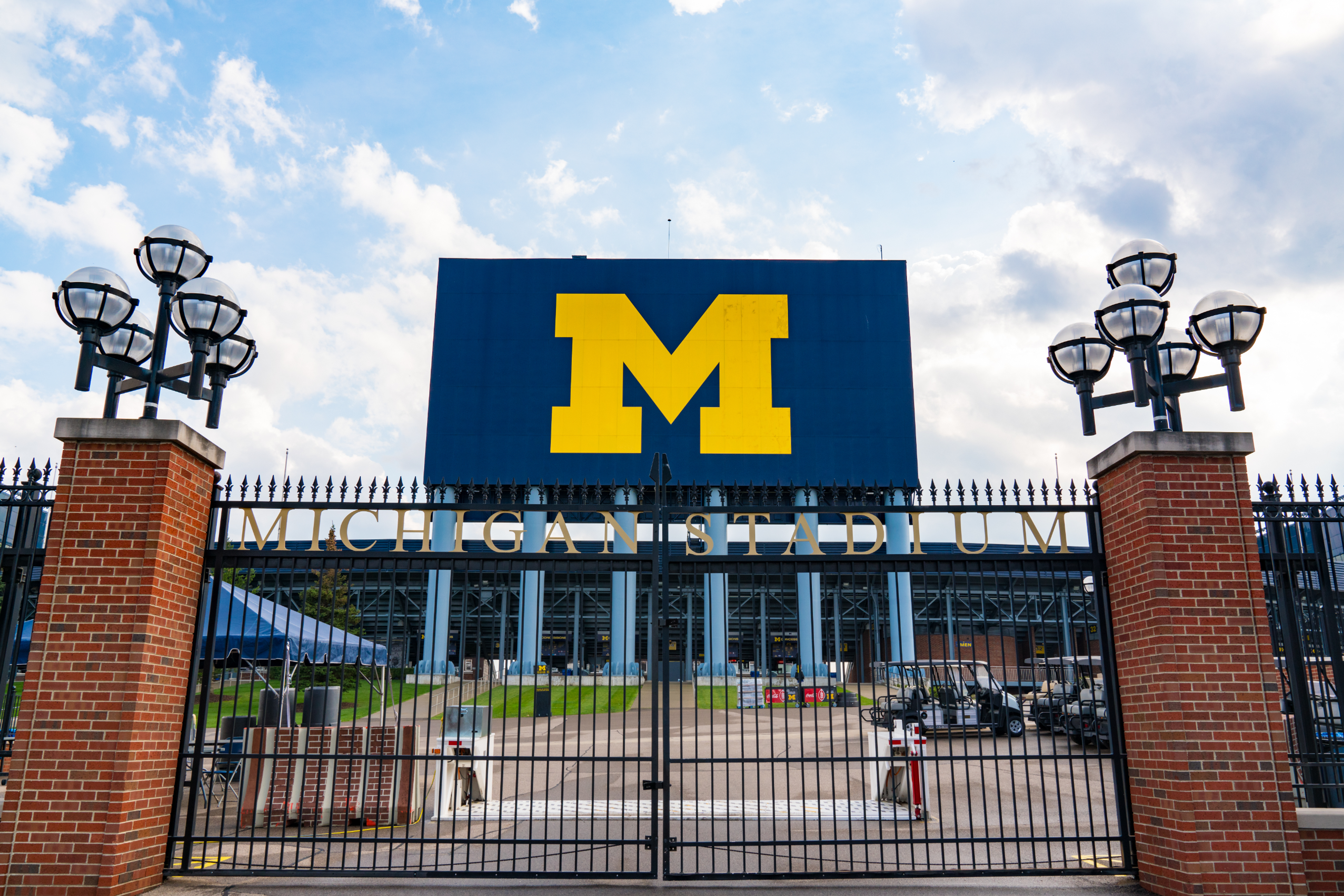
Table of Contents
If you have aspirations of becoming a dentist, you may be curious about the admission requirements and process for the University of Michigan School of Dentistry. The University of Michigan School of Dentistry at Ann Arbor has a longstanding reputation for excellence in dental education. With roots dating back over 140 years, UMich was the first state university in the world to offer a dental education and has consistently been at the forefront of dental research, innovation, and education. As one of the most prestigious dental schools in the nation, it offers a comprehensive curriculum that focuses on hands-on learning and clinical experience and a supportive and inclusive community. With state-of-the-art facilities and technology, students gain practical experience with the latest tools and techniques in dentistry with the guidance of experienced faculty, preparing them to become skilled and confident dental professionals.
In this article, we will provide an in-depth overview of everything you need to know in order to gain acceptance into this prestigious institution.
UMich DDS Class Profile (Class of 2028)
- Admitted Students: 109
- Applicants: 1,716
- Acceptance Rate: ~6.4%
- Average Age: 22
- Female Students: 62 (56.9%)
- Male Students: 47 (43.1%)
- Michigan Residents: 65 (59.6%)
- Out-of-State Students: 44 (40.4%)
- Hold a Graduate Degree: 4 students (3.7%)
- Undergraduate Backgrounds:
- 11 Michigan colleges and universities represented
- 27 from University of Michigan (24 from Ann Arbor, 3 from Dearborn)
- 15 from Michigan State University
- Students also came from 37 institutions nationwide
University of Michigan School of Dentistry DDS Application Overview (2025‑2026)
Application Deadline
- Submit your application through ADEA AADSAS by the official deadline (typically early fall).
- All prerequisite courses must be completed by May of your matriculation year.
Academic Requirements
- Minimum coursework: 90 semester hours (~135 quarter hours), bachelor’s degree strongly recommended.
- Strong emphasis on holistic review: GPA, DAT scores, letters of recommendation, shadowing, leadership & community service
The admissions requirements for UMich School of Dentistry (SOD) are rigorous in order to ensure that only the most qualified candidates are accepted. To apply to the DDS program, you’ll need to submit official transcripts from all colleges or universities attended to show you have completed at least 90 semester hours or 135 quarter hours of academic coursework, although completing a bachelor’s degree is highly recommended. You’ll also need to have completed the following courses with a grade of C- or higher by May of your intended year of matriculation:
- Biochemistry (3 semester hours/5 quarter hours)
- Microbiology (3 semester hours/5 quarter hours)
- Psychology (3 semester hours/5 quarter hours)
- Sociology (3 semester hours/5 quarter hours)
- This course must be completed in the U.S. or Canada
- English Composition (6 semester hours/9 quarter hours)
- Only one literature course can count towards this requirement
- These courses must be taken in the U.S. or Canada
- ESL courses may not be used to fulfill this requirement
- Biology with labs (8 semester hours/12 quarter hours)
- General Chemistry with labs (8 semester hours/12 quarter hours)
- Organic Chemistry with labs (8 semester hours/12 quarter hours)
- Physics with labs (8 semester hours/12 quarter hours)
The School of Dentistry accepts community college coursework, but highly recommends completing the prerequisites at a four-year institution. AP coursework is accepted if credit was received and the AP courses appear on your official transcripts. CLEP credits are not accepted.
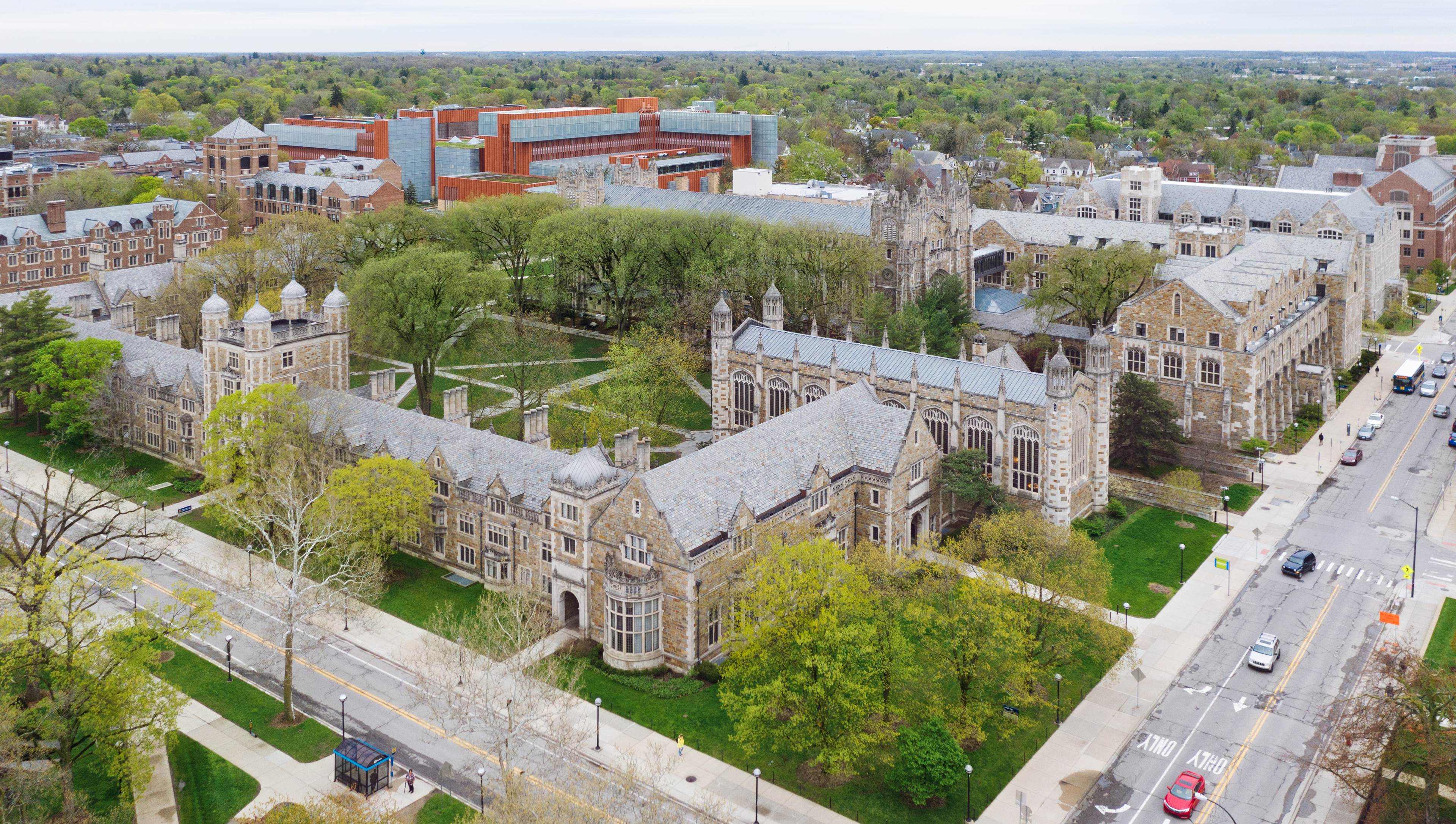
Shadowing & Extracurriculars
UMich requires applicants to complete at least 100 hours of shadowing of a dentist in a patient-care setting to demonstrate interest in dentistry. While most applicants shadow general dentists, shadowing experiences completed with dental specialists such as orthodontists or oral surgeons are also accepted. Work as a dental assistant is accepted, but should not be your only source of shadowing experience.
Dental-related extracurricular activities such as volunteering or participating in a pre-dental club are recommended, but are optional and do not count towards the shadowing requirement. Both shadowing and extracurricular activities should be reported in your AADSAS application. The School of Dentistry admissions committee also recommends applicants show a commitment to addressing health disparities and caring for underserved communities through shadowing or extracurricular experiences.
Letters of Recommendation
The University of Michigan dental school application requires three letters of recommendation, although you may choose to submit an additional fourth letter from an evaluator of your choice.
- Two letters from science professors: Two of your letters should come from science professors whose classes you have taken for a grade (not Pass/Fail). Letters should include the course name and number. Letters from research faculty are acceptable as long as they correspond to a graded course on your transcript. Letters from psychology professors are acceptable, but the admissions committee recommends your letters come from a professor of a basic science (biology, chemistry, physics, biochemistry, or microbiology)
- One letter of choice: Your third letter can come from any evaluator of your choice, such as a dentist, employer, mentor, or another professor (science or non-science)
- Committee letter option: If your undergraduate institution has a pre-health committee, you may submit a letter or letter packet by the committee members in place of three individual letters
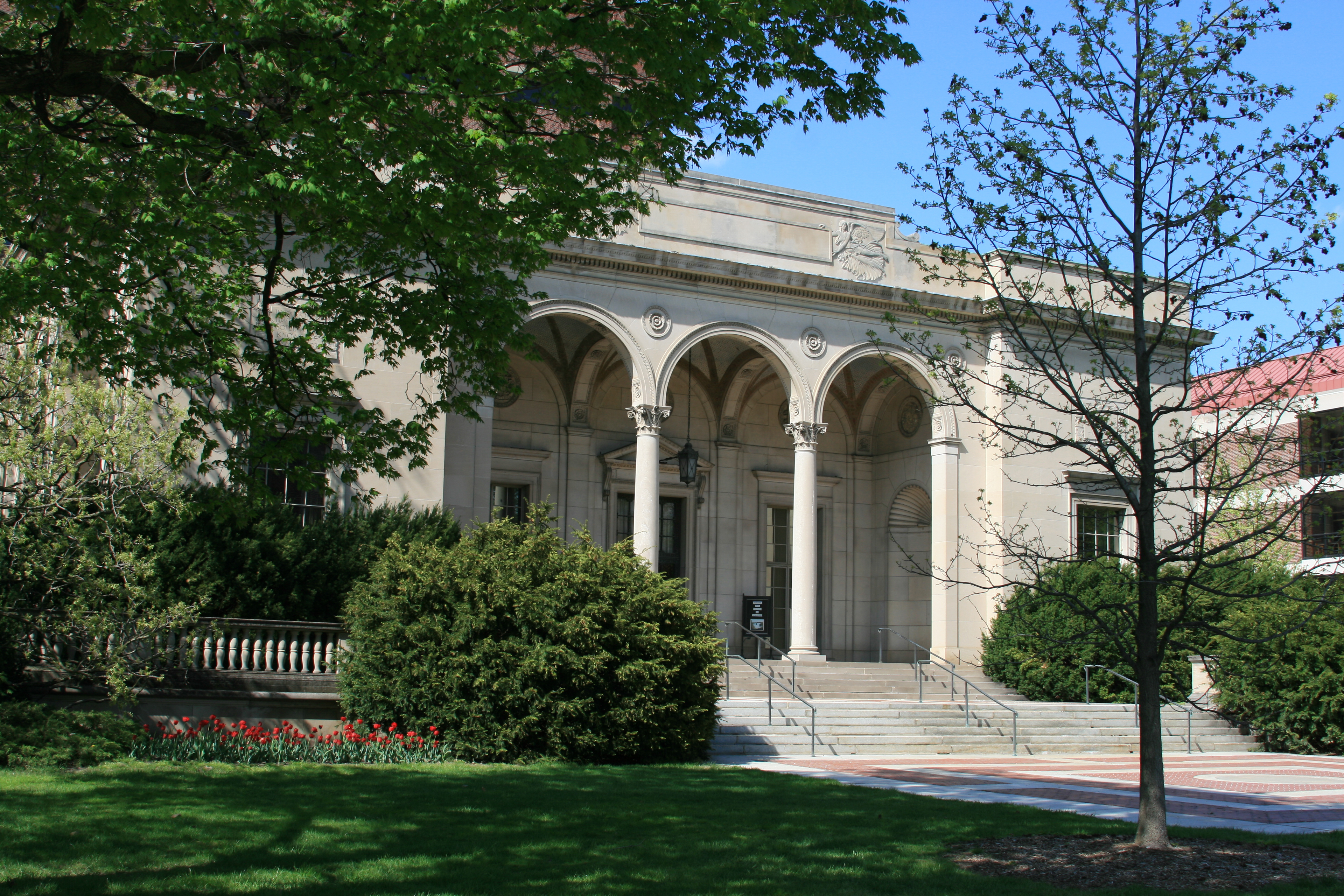
Dental Admissions Test (DAT)
You'll need to submit official DAT scores from within the past 3 years for your application. In order to meet the application deadline, you will need to take the DAT before August 31st of your application year. While UMich does not have a DAT score cutoff, it recommends you aim for a score similar to the Class of 2027 average DAT (21.8), as it is a highly competitive dental school.
UMich School of Dentistry Interview
After submitting the application, about 300 applicants are extended invitations for Campus Visit Interviews, which begin in the fall and continue through January. As of the 2024-2025 application cycle, UMich SOD also offers virtual interviews.
The interview utilizes the Multiple Mini Interview (MMI) format, during which candidates rotate through timed stations for one-on-one discussions about a variety of topics with admissions committee members, dental students, staff, and faculty.
Expert Tips for the UMich MMI Interview:
- Practice! This will help you manage your time and reduce interview anxiety to make the most of the short time you have with each interviewer. Working with one of our experienced dental admissions coaches can help you anticipate possible questions and formulate thoughtful answers
- Demonstrate how you will align with the school’s values and contribute to the incoming class. The mission of UMich Dentistry is “advancing health through education, service, research and discovery” and the core values are Compassion, Leadership, Excellence, Responsibility, Trust, Creativity, and Inclusion
- Relax and be yourself. Although an interview is not a guarantee of admission, you were invited to interview for a reason! Aim to be authentic, rather than trying to tell the interviewers what you think they want to hear
Application Fee
Applicants need to pay a nonrefundable application fee of $75. If you qualify for the AADSAS Fee Assistance Program, you may waive this fee by sending your approval email from AADSAS to the admissions office at [email protected].
For more information about the DDS application process, see the UMich SOD admissions page.
University of Michigan School of Dentistry DDS Program Overview
The Doctor of Dental Surgery (DDS) program at the University of Michigan School of Dentistry emphasizes biomedical sciences and clinical care, with direct patient care beginning in D1. UMich operates on a quarter system, so each year is divided into a spring/summer, fall, and winter quarter. The program is also unique in its vertical integration: students in all four years form clinical dentistry teams.
DDS Curriculum Overview
D1 Student Experience
First-years will choose one of two Pathways:
- Selectives Pathway: This pathway provides students with flexibility to customize their curriculum to their own interests through elective options in D2-D4, such as:
- Clinical Intro to TMD & Orofacial Pain
- Dental Pulp & Pulp Responses
- Digital Planning and 3D Printing in Dentistry
- Emerging Educators: Preclinical/Clinical Teaching
- Global Initiatives in Oral & Craniofacial Health
- Hospital Dentistry - D4 Elective
- Innovations in Cancer Diagnosis & Treatment of Oral/Head/Neck Cancers
- Integrative Dentistry
- On Campus Mini-Rotations
- Orthodontics (D3 and D4 Electives)
- Precision Health
- Supplemental Professional Learning
- Survey Design
- TMD, Sleep Bruxism and Occlusion
- Volunteer CBCE (Outreach) Rotations
- Immersion Pathway: This pathway offers a deeper focus on a topic of interest through the completion of a capstone project. Current capstone projects include:
- Assignment of Scoring, Analysis, and Application of the McGill Pain Questionnaire
- Developing an educational intervention to educate dental and dental hygiene students and dentists and dental hygienists about providing optimal care for patients from LGBTQ+ backgrounds.
- Enhancing fluoride retention in dental biofilm
- Head and Neck Cancer Treatment: How Does Oral Health Related Quality of Life Change Following Treatment?
- Holistic Health Status and Caries Risk
- Masticatory kinematics and chewing rate in the house mouse
- Oral Health Promotion Program for Elementary Schools in Meru County, Kenya
- Painless Dentistry
First-years will take courses covering the fundamentals of biomedical sciences and dentistry-specific topics, while also spending half a day each week in clinic, assisting upper classes in clinical care starting in winter quarter.
D2 Student Experience
Second-year students will continue courses and increase their clinical time to 1 to 2 days each week conducting exercises such as bite splint fabrication, intraoral photo taking, occlusal examination, and local anesthesia, as well as planning treatment for uncomplicated patients and providing fillings and cleanings. Starting in winter quarter, second-year students will begin managing patient families.
D3 Student Experience
Third-years will spend about two days a week seeing their own patients, while also completing two weeks of hospital dentistry outside the School of Dentistry. They’ll also complete oral surgery and pediatric dentistry specialty-based rotations.
D3s will serve patients with a diverse set of needs and gain practical dental experience while providing community service at more than 20 clinics across the state.
General Dentistry Clinics:
- Dental Student Clinics
- Delta Dental Integrated Special Care Clinic
Partner Clinics Through the Community-Based Collaborative Care and Education (CBCE) Program:
- Cassopolis Family Clinic Network
- Cherry Health, Grand Rapids
- Community Dental Center, Ann Arbor
- Family Health Center, Kalamazoo
- Grace Health, Battle Creek
- Grand Traverse Band of Ottawa and Chippewa Indians, Peshawbestown
- Great Lakes Bay Health Centers, Saginaw
- Hackley Community Care Center, Muskegon
- Hamilton Community Health Network, Flint
- Hope Clinic, Ypsilanti
- Northwest Michigan Health Services, Inc., Traverse City & Victors 4 Veterans
- Pokagon Band of Potawatomi Indians, Dowagiac
- Thunder Bay Community Health Services, Inc., Atlanta
- VINA Community Dental Center, Brighton
- Washtenaw Community College, Ypsilanti
D4 Student Experience
D4s will spend 3 days a week seeing their own patients and complete 12 weeks of Outreach outside of the School in various community-based practice settings. If you chose the Immersion Pathway, you will also present your completed project at the annual Pathways Day.
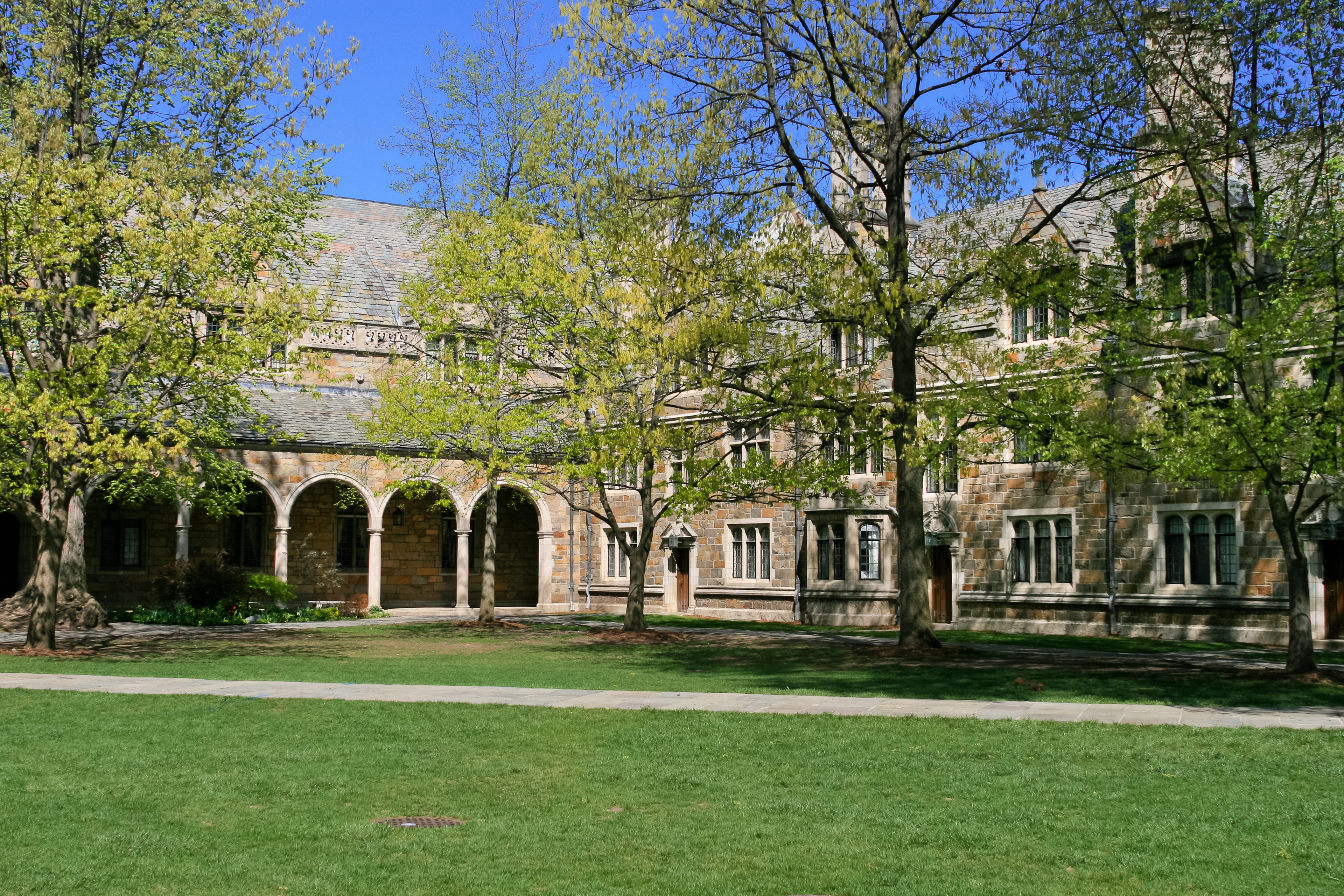
Student Life
Offering a breadth of academic, volunteer, and social opportunities, student life in the UMich DDS is known for its inclusivity and supportive environment. Dental students contribute to community-based care in 26 clinics across the state through the CBCE Program and through Global Initiatives in Oral and Craniofacial Health. These initiatives take place in nine countries across the globe, offering dentists-in-training the opportunity to visit another country and learn about the culture and healthcare systems, as well as special topics such as dental hygiene for children with disabilities, cleft lip/palate, outreach to rural communities, and preventative oral health programs.
As a top 5 NIH-funded research institution, UMich SOD also offers several ways to get involved in research, such as training opportunities on campus and at the NIH and a DDS/Oral Health Sciences PhD program. Students in this dual degree program earn a DDS from the School of Dentistry and a PhD in Oral Health Sciences from the Rackham Graduate School.
Cost of Attendance
As a public institution, UMich School of Dentistry is more affordable than most other dental schools, especially for Michigan residents. However, the cost of attendance is still a significant financial burden. All applicants are automatically considered for SOD scholarships, and UMich also offers need-based grants and loans, which you will have to apply for through FAFSA.
Michigan Resident
| Category | D1 | D2 | D3 | D4 |
|---|---|---|---|---|
| Tuition & Fees | $50,278 | $60,172 | $60,172 | $60,172 |
| Living Expenses | $29,757 | $35,709 | $35,709 | $35,709 |
| Books, Materials, Equipment | $11,014 | $8,652 | $6,622 | $6,102 |
| Transportation | $500 | $600 | $600 | $600 |
| Personal Expenses | $10,990 | $13,188 | $13,188 | $13,188 |
| Total (Resident) | $102,539 | $118,320 | $116,291 | $115,771 |
Non-Resident
| Category | D1 | D2 | D3 | D4 |
|---|---|---|---|---|
| Tuition & Fees | $68,396 | $81,910 | $81,910 | $81,910 |
| Living Expenses | $29,757 | $35,709 | $35,709 | $35,709 |
| Books, Materials, Equipment | $11,014 | $8,652 | $6,622 | $6,102 |
| Transportation | $500 | $600 | $600 | $600 |
| Personal Expenses | $10,990 | $13,188 | $13,188 | $13,188 |
| Total (Resident) | $120,657 | $140,058 | $138,029 | $137,509 |
Note: D1 is a 10-month budget. D2-D4 are 12-month budgets.
Key Takeaways
- UMich School of Dentistry is a leading dental school, with a rigorous DDS curriculum and emphasis on clinical care
- To apply to the DDS program, you’ll need to submit transcripts as evidence you fulfilled the academic requirements, a competitive DAT score, at least 100 hours of shadowing experience, and letters of recommendation. If you are extended an interview invitation, you will need to participate either in-person or virtually
- With dozens of clinics across the state, you’ll have extensive opportunities to develop essential skills while providing care to underserved communities
The Bottom Line
The University of Michigan School of Dentistry is one of the most competitive and prestigious dental programs in the country, offering a rigorous, hands-on education rooted in community care, research, and clinical excellence. With an acceptance rate of just 6.4%, successful applicants stand out through strong academics, meaningful shadowing, leadership experience, and a clear commitment to serving others. If you’re passionate about dentistry and ready to meet UMich’s high standards, this program can offer unmatched training, support, and real-world experience to launch your career as a confident, skilled dental professional.
Want Help Getting Into UMich Dental School?
Our dental school coaches can help you write a strong application, get ready for your interview, and feel confident about your chances. Whether you’re just starting or almost done, we’re here to guide you. Schedule a one-on-one session today to boost your chances of getting accepted.
Here are a few more resources you may find helpful as you apply to dental school:
- How to Get Into a US Dental School as an International Applicant
- What Do You Learn in Dental School?
- How Much Does It Cost to Go to Dental School
- DMD vs. DDS: What's the Difference and Which is Better?
- How Hard Is It (Actually) to Become a Dentist?
- Best Majors for Dental School: A Guide for Pre-Dental Students
- The Complete Guide to the Dental School Application
- How to Become a Dentist: Application, Degree Programs, FAQs
- The Top 25 Dental Schools – and How to Get In
FAQs
How hard is it to get into the University of Michigan dental school?
- Extremely competitive, UMich’s DDS program admits just about 6.6–6.7% of applicants. For instance, in a recent cycle, 1,649 applicants vied for 109 seats, resulting in an acceptance rate of approximately 6.6%.
Is the University of Michigan dental school a good school?
- Absolutely. UMich consistently ranks as the #1 dental school in the U.S., holding top spots in both QS and Shanghai global rankings. It also leads U.S. rankings based on academic reputation, research impact, and employer perception.
What is the acceptance rate for Michigan dental school?
- The current class size is 109 students, and with approximately 1,649–1,716 applicants, the acceptance rate is around 6.6–6.7%.
What is the University of Michigan dentistry ranked?
- #1 in the U.S. for the eighth consecutive year in QS World Rankings by Subject. The 5th globally per QS 2022, rising to #1 globally as recently as 2024 in both QS and Shanghai lists





